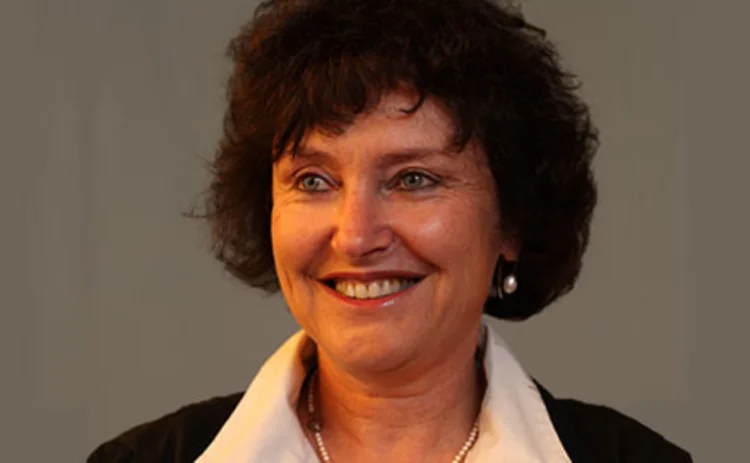
Bank of Israel saga comes full circle with Flug nomination

Karnit Flug was nominated as the next Bank of Israel governor last night – signalling an end to an apparently haphazard selection process that has seen the government explore numerous different avenues before settling on the most obvious candidate for the job.
Stanley Fischer stepped down from the central bank on June 30 this year, having announced his departure in January. Before leaving he endorsed Flug, then deputy governor, as his successor – but prime minister Benjamin Netanyahu and his finance minister, Yair Lapid, had other ideas.
In the 112 days following Fischer's departure, Netanyahu and Lapid nominated two external candidates and scrutinised several more, before eventually nominating Flug for a five-year term. If confirmed, she will become the first female governor in the Bank of Israel's 59-year history.
Only Netanyahu's cabinet, which must approve the nomination, stands in her way. Under normal circumstances this would be little more than a rubber-stamping of the prime minister's choice but, given the numerous plot twists so far, the cabinet could yet spring another surprise.
Netanyahu and Lapid initially nominated Jacob Frenkel – an attractive prospect because of his international reputation and previous experience leading the Bank of Israel between 1991 and 2000.
We have been impressed by Dr. Flug's performance as Acting Governor in recent months
Despite Frenkel's early enthusiasm to return to the central bank, he turned down the nomination at the end of July after accusations of shop-lifting dating back seven years – which he firmly denied – were dragged into the public spotlight.
Netanyahu and Lapid responded with a snap decision and nominated Leo Leiderman, the chief economist of a domestic bank, just three days after Frenkel withdrew his candidacy.
At this point Flug, having been passed over twice, tendered her resignation. In a dignified statement she congratulated Leiderman on his "expected appointment", and announced she would leave one month after he had taken up his position.
However, just two days later, disaster struck for Netanyahu and Lapid. Leiderman, spooked by the public furore that was now surrounding the job, turned down the job as well.
After losing two candidates and one deputy governor in the space of a week, and receiving a great deal of criticism over their handling of the process, Netanyahu and Lapid took their time with the next nomination. Three more candidates emerged in August: Mario Blejer, Zvi Eckstein and Victor Medina.
Blejer was widely seen as the favourite given his experience within the Central Bank of Argentina – he served as deputy governor and (briefly) governor – and at the Bank of England.
As August and September passed, however, Blejer's nomination failed to materialise. Despite all three candidates clearing an independent scrutiny committee led by judge Jacob Turkel, Netanyahu and Lapid held off making a decision.
In the absence of any appointment, Flug continued to serve as acting governor. In September, the Bank of Israel's monetary committee, led by Flug, voted to cut the benchmark interest rate by 25 basis points to 1%.
The committee pointed to their below-target forecasts for inflation, and the ongoing appreciation of the Israeli shekel relative to the US dollar. The shekel has steadily increased by 8% against the dollar in the past year.
Apparently impressed with Flug's performance in the interim period, Netanyahu and Lapid relented and nominated the woman they had passed over at every turn to the top job.
"We have been impressed by Dr Flug's performance as acting governor in recent months and we are certain that she will continue to assist us in moving the Israeli economy to additional achievements in the face of the global economic upheaval," they said in a statement last night.
Flug issued her own statement thanking the pair for their nomination, and saying she looked forward to tackling the "significant challenges" facing the Israeli economy.
In her first act since accepting the nomination, Flug today appointed Nathan Sussman, director of the Bank of Israel's research department, to the monetary committee. Sussman will replace Barry Topf, who announced his retirement in May after a career at the central bank spanning 30 years.
The committee has six members – three internal and three external. The three internal members consist of the governor, deputy governor and an "additional bank employee" of the governor's choosing. The internal members will remain at a disadvantage, however, until Flug's successor as deputy is named.
If her nomination is confirmed, Flug will become the first woman to head the Bank of Israel. The upper echelons of central banks are notoriously dominated by men, but Flug's nomination is the latest sign the tide could be turning.
Janet Yellen was nominated as the next Federal Reserve governor last week, while a host of women have already taken up the top central banking jobs in their country. Since June, Elvira Nabiullina, Yussur Abrar and Vonimanitra Razafimbelo have taken the top jobs in the Russian, Somalian and Madagascan central banks respectively.
Only users who have a paid subscription or are part of a corporate subscription are able to print or copy content.
To access these options, along with all other subscription benefits, please contact info@centralbanking.com or view our subscription options here: www.centralbanking.com/subscriptions
You are currently unable to print this content. Please contact info@centralbanking.com to find out more.
You are currently unable to copy this content. Please contact info@centralbanking.com to find out more.
Copyright Infopro Digital Limited. All rights reserved.
As outlined in our terms and conditions, https://www.infopro-digital.com/terms-and-conditions/subscriptions/ (point 2.4), printing is limited to a single copy.
If you would like to purchase additional rights please email info@centralbanking.com
Copyright Infopro Digital Limited. All rights reserved.
You may share this content using our article tools. As outlined in our terms and conditions, https://www.infopro-digital.com/terms-and-conditions/subscriptions/ (clause 2.4), an Authorised User may only make one copy of the materials for their own personal use. You must also comply with the restrictions in clause 2.5.
If you would like to purchase additional rights please email info@centralbanking.com




